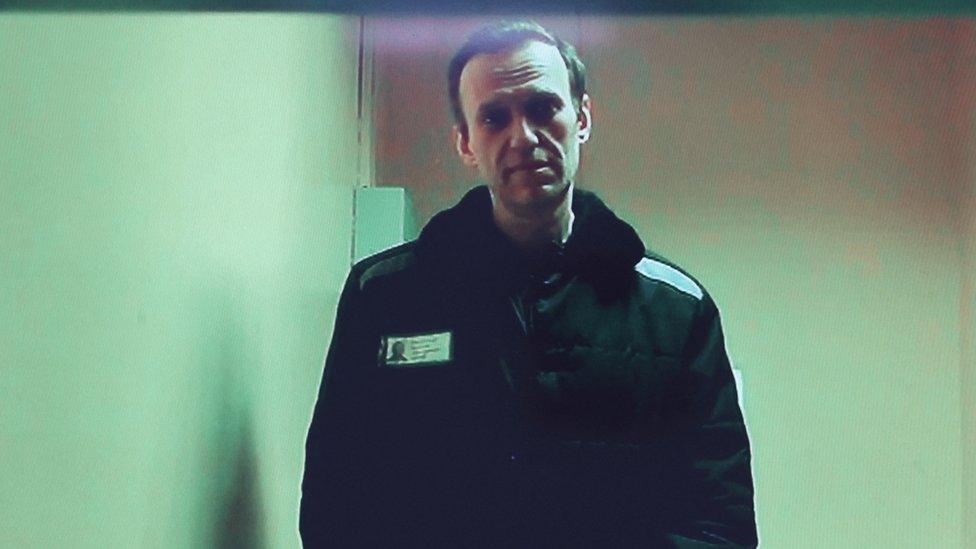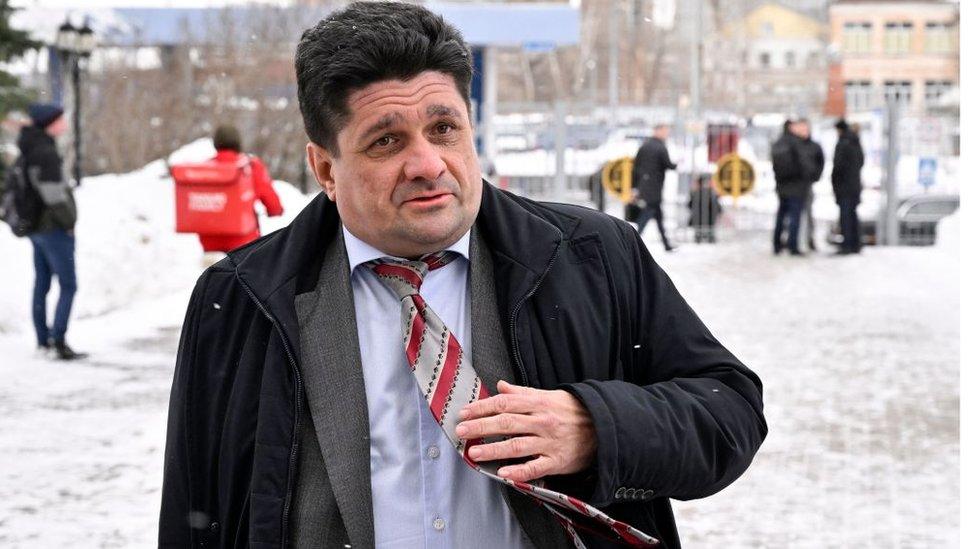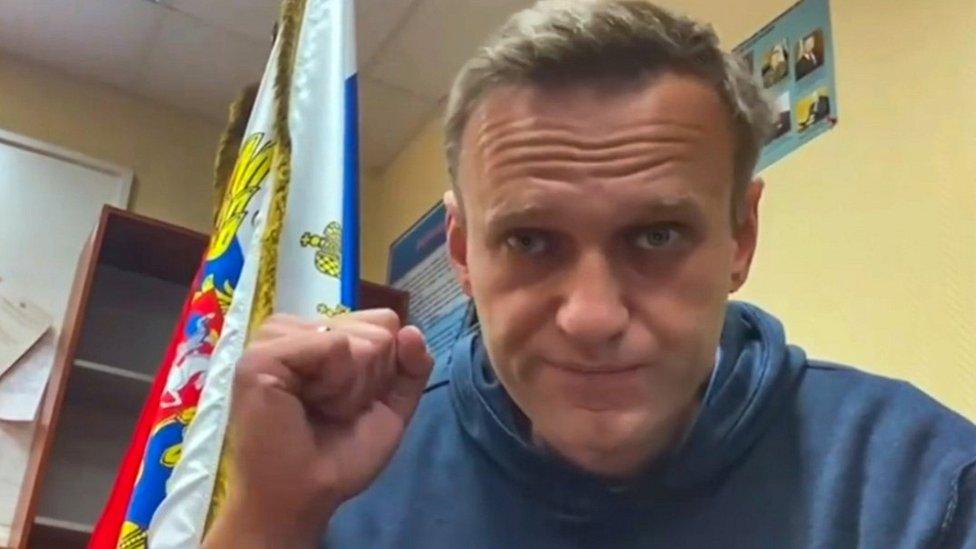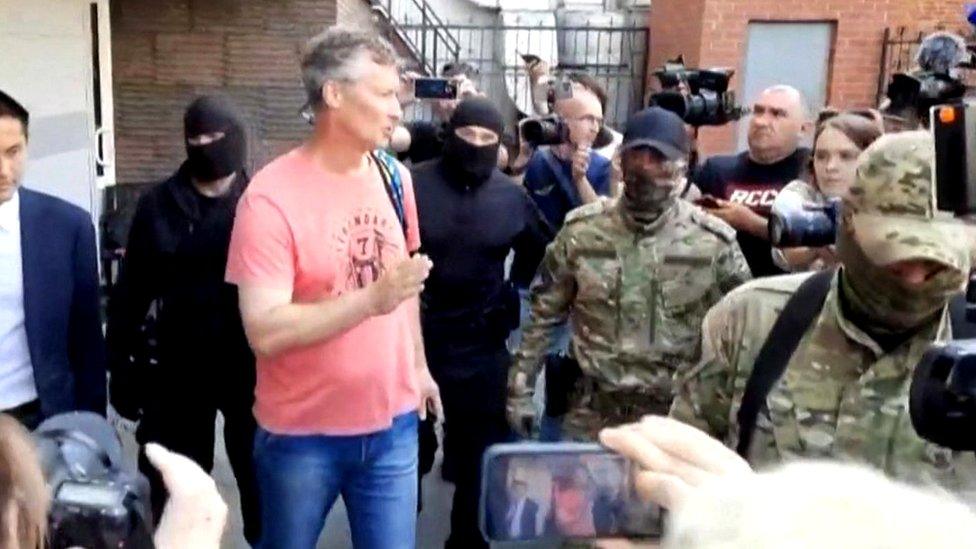Russia's Navalny says he is facing jail beyond 2050
- Published

Alexei Navalny has been in jail since 2021 and appeared via video link on Wednesday
Alexei Navalny, the jailed Russian opposition leader, has said he is being investigated on terrorism charges which could see him imprisoned beyond 2050.
Speaking via video link from his penal colony, Navalny called the new case against him "absurd".
He is already facing 11-and-a-half years in prison on a range of charges, which supporters say are trumped-up.
Separately, another leading opposition figure, former Yekaterinburg Mayor Yevgeny Roizman, has gone on trial.
He has pleaded not guilty to charges of discrediting Russia's armed forces.
Russia has intensified a crackdown on its critics at home since invading Ukraine last year, with many in exile or behind bars.
Navalny said in court on Wednesday that a new criminal case has been opened which would see him judged by a military tribunal on "terrorism" charges.
He said it related to a criminal case opened against him in October on allegations of creating an extremist group, inciting hatred against state officials, and calling for unauthorised protests.
"They have brought absurd charges against me, according to which I am facing up to 35 years," said the Kremlin critic, who has been in prison since he returned to Russia in January 2021 after recovering from a nerve agent attack in Siberia.
There has been no confirmation yet of a separate criminal case from Russian authorities.
Navalny's latest court appearance was part of a pre-trial hearing related to the amount of time authorities are giving him to familiarise himself with the case files. He is due to reappear in court next week.
His current prison term comes to an end in 2031, but if he is given the maximum punishment in all cases opened against him he will stay behind bars beyond 2050, according to investigative project Agentstvo, citing lawyers.
After his appearance on Wednesday, Navalny said he had been returned to solitary confinement, having spent 15 days there already.
Meanwhile, another high-profile Russian dissident is facing five years in jail in the city he led for several years. The prosecution in Yekaterinburg says former Mayor Yevgeny Roizman took part in a YouTube discussion last August where he negatively assessed the way Russian troops were being used in Ukraine.
In an interview with the AFP news agency last summer, Mr Roizman said: "Something horrible is happening, evil is prevailing. Absolutely vile evil is suddenly prevailing before our eyes."
Until his arrest in August, the ex-mayor was one of the last remaining prominent opposition politicians in Russia who had not been killed, detained, or forced out of the country.
In interviews, he was often asked why he had not fled Russia, like so many of his fellow activists. "I can't flee," he said shortly after the start of the full-scale invasion of Ukraine. "It is unacceptable for me to do that."
Earlier this week, in yet another show of Russia's crackdown on dissenting opinions over the invasion, an interior ministry worker was sentenced to seven years in jail for spreading "fake news" about the war in a personal phone call.
Sergei Klokov was detained a few weeks after Russia's invasion of Ukraine in March 2022 when his phone was tapped. He reportedly told a friend over the phone: "We think we are fighting fascism, but there isn't fascism there. There isn't."
Related topics
- Published20 April 2023

- Published16 February 2024

- Published24 August 2022
